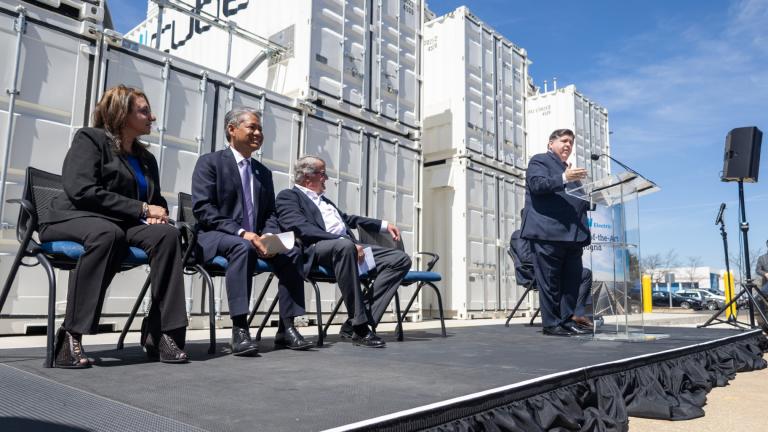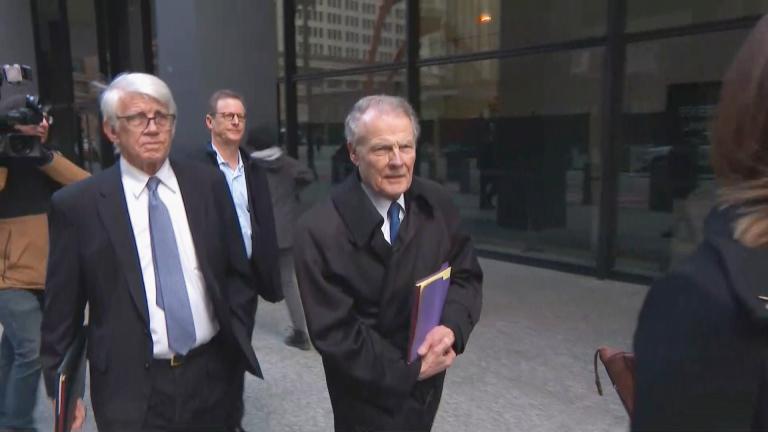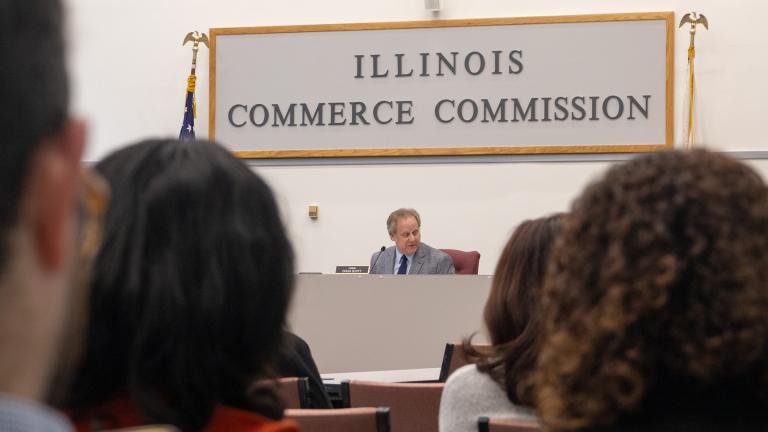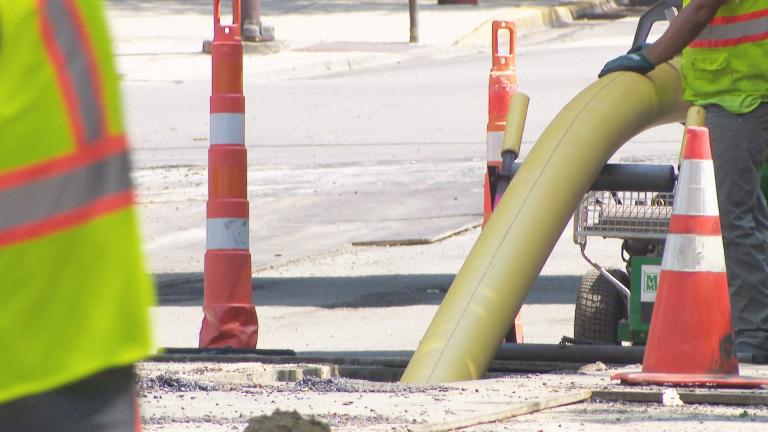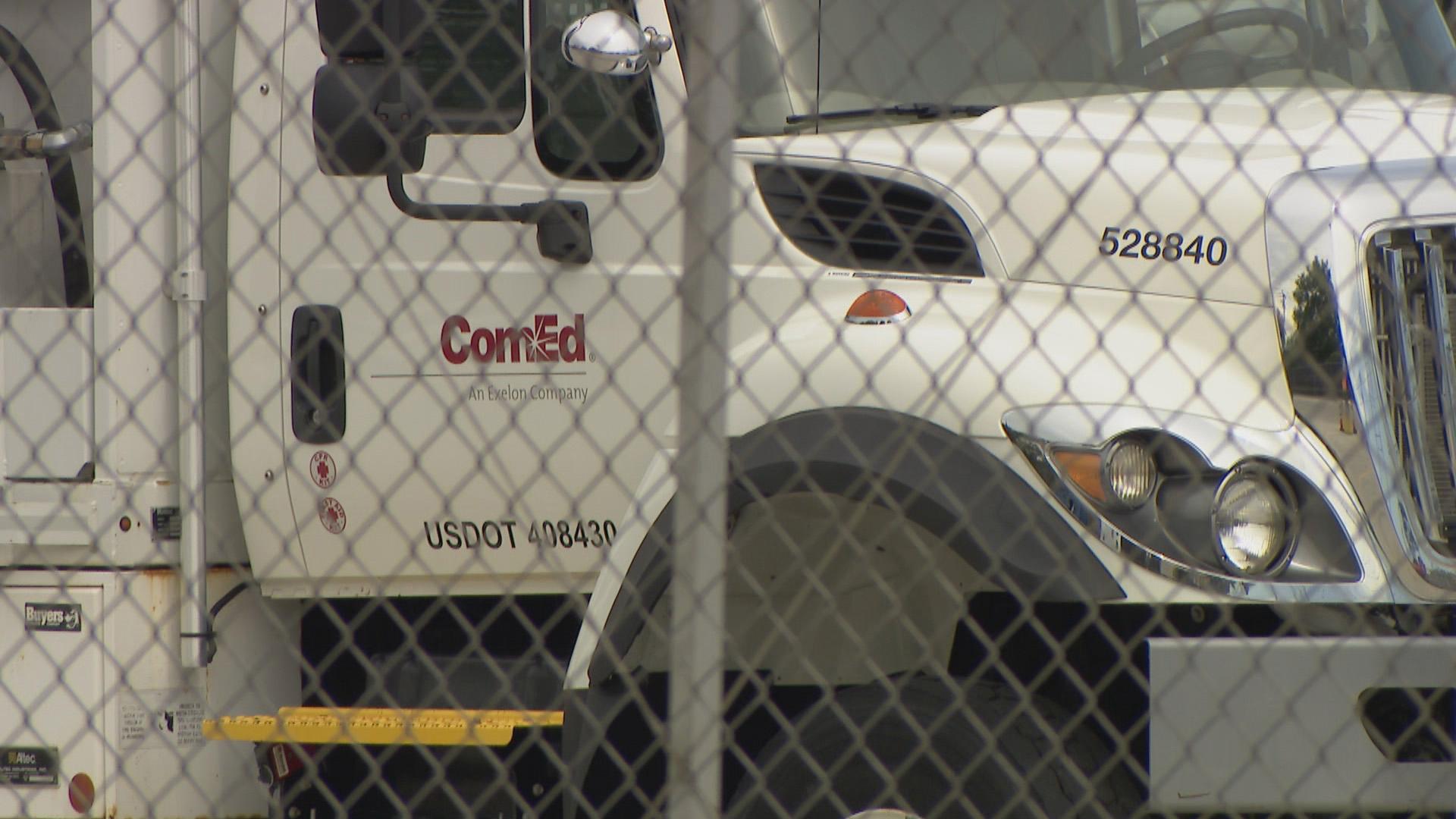 (WTTW News)
(WTTW News)
A former precinct chief and longtime ally of ex-House Speaker Michael Madigan testified that for years he received checks from Commonwealth Edison representatives to do “little or no work” as part of an alleged scheme to corruptly influence Madigan.
Edward Moody, one of the federal government’s key witnesses in the “ComEd Four” trial, said Tuesday that starting in 2012, he received monthly checks from lobbyist and longtime Madigan confidant Michael McClain under the guise of doing consulting work for ComEd.
But according to Moody — who is testifying under an immunity deal with the government — he was actually being paid to continue working as a political operative on Madigan-connected campaigns.
“‘(McClain) said ‘This was a hell of a plum and that I owed the speaker big,’” Moody testified about the agreement.
McClain, along with ex-ComEd CEO Anne Pramaggiore, retired ComEd executive John Hooker and ex-City Club of Chicago president and former ComEd consultant Jay Doherty are all charged with bribery conspiracy, bribery and willfully falsifying the utility’s books and records for allegedly scheming to corruptly influence Madigan.
Federal prosecutors have argued the four did this through a number of means, including paying Madigan allies as ComEd subcontractors, who in turn would actually do little or no work for the utility company.
Moody testified that he worked for years in the early 1990s in Madigan’s ward and other parts of the city, going door-to-door with his twin brother, Fred Moody, to campaign for Madigan-backed candidates in local, state and federal elections.
The twins were eventually ranked as the top precinct captains in their area, and Moody testified that he got a job working as a jury supervisor at the Cook County courthouse in Bridgeview in 1993.
Asked how he got that job, Moody testified: “Madigan got it for me.”
“Did you apply for it?” Assistant U.S. Attorney Diane MacArthur asked.
“Well, no,” Moody replied, adding that he wasn’t interviewed either, “because I knew I already had the job.”
Moody said he stayed working in that role for more than 20 years, all the while continuing to spend “thousands” of hours campaigning through his precinct for Madigan’s candidates. While Moody enjoyed his political work, he said there was “always fear” that Madigan could take away his court job if he didn’t campaign well enough.
Sometime in 2011 or 2012, when Moody approached Madigan about getting a lobbying job that would pay him around $45,000 per year on top of his courthouse position, Madigan didn’t respond. Moody said he felt disrespected by the speaker, and went with his brother to confront Madigan at his office.
“It was very unique; it was very odd,” Moody said as he recalled the meeting. “We were never visibly upset with the speaker, we never showed those emotions. But we did that day.”
Madigan relented, according to Moody, and told him he’d be working for McClain and that he’d be getting his $45,000 per year. Under that deal, Moody said he was told to contact legislators about any potential ComEd issues, and then direct those issues to McClain.
Moody testified he only worked about an hour per month calling these legislators, adding that this work “didn’t compare” to the amount of time he spent working political campaigns. He told jurors he believed he was actually being paid “to stay active in my politics.”
When asked by MacArthur directly if he had received monthly checks for years in exchange for doing “little or no work” on ComEd’s behalf, Moody replied: “I did.”
Moody testified that in 2014, he stopped working under McClain and instead began working under Doherty. He said he was paid $4,500 each month but was never given any assignments and never rendered any services for ComEd during this time.
That arrangement continued until October 2016, according to Moody, when he was approached about being appointed to the Cook County Board of Commissioners. Moody said he was interested in the position, but had to get permission from Madigan first, because he knew the speaker could “put a brick on it.”
After serving on the Cook County Board from 2016 to 2018, Moody was appointed to serve as Cook County recorder of deeds from late 2018 until that office merged with the Cook County clerk’s office in 2020. Moody also previously worked in the elected position of Worth Township highway commissioner.
After becoming a commissioner, Moody testified, his contract was bounced from Doherty to lobbyist Shaw Decremer, and then in 2018 to former state Rep. John Bradley. In a February 2018 email, McClain wrote to Bradley that he’d begin receiving $14,500 per month, which would be split between Bradley, state Rep. Eddie Acevedo and Moody.
Bradley responded back to McClain in another email, which stated: “Of course. I’m honored.”
On cross examination, McClain’s defense attorney, Patrick Cotter, pointed out that Moody had actually done the assignments given to him by McClain, and that Moody had actually done more than 200 hours of canvassing on behalf of McClain while he was working for him.
Moody said he knew that he had canvassed, but that he didn’t recall the “intensity with which” he was doing the work, because he was “always canvassing” throughout his career.
“I told them what I remembered,” Moody said, describing the evidence he’d given to prosecutors.
Cotter also pointed out that of all the other positions Madigan helped Moody get throughout his career, none of them were no-show jobs.
Jurors previously viewed a recorded conversation from 2019 between ComEd’s former vice president of government affairs Fidel Marquez and Doherty during which Marquez asked about the subcontractors: “Do they do anything or what do they do? What do you have them doing?”
Doherty replied: “Not much.” He then warned Marquez, saying he wouldn’t “tinker” with the specifics of the contract.
“Your money comes from Springfield, ComEd money,” Doherty said in the recording. “My bottom line advice would be, if it ain’t broke, don’t fix it with those guys.”
Marquez has pleaded guilty to a bribery charge for his involvement in the alleged scheme and began cooperating with the government by secretly recording conversations and phone calls with the defendants beginning in early 2019.
Prosecutors are expected to rest their case Wednesday morning, at which point the defense teams can begin calling their own witnesses.
Contact Matt Masterson: @ByMattMasterson | [email protected] | (773) 509-5431

